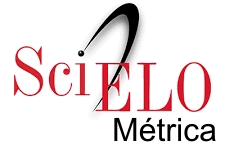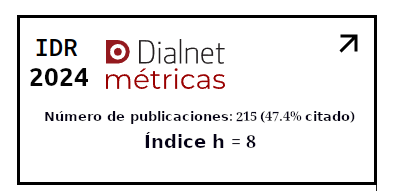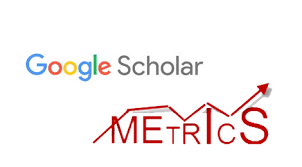Pensamiento crítico y comprensión lectora en un texto de Edgar Morin
DOI:
https://doi.org/10.30545/academo.2024.ene-abr.4Palabras clave:
Comprensión lectora, pensamiento crítico, dimensión sustantiva, dimensión dialógica, educación superiorResumen
El propósito de la presente investigación fue determinar la correlación entre la comprensión lectora y el pensamiento crítico de estudiantes universitarios a través del texto Los siete saberes necesarios de la educación del futuro, de Edgar Morin. Los estudiantes corresponden a la asignatura de Comunicación oral y escrita de una universidad privada de Lima-Perú. Con respecto a la muestra empleada, esa fue no probabilística, compuesta por 125 participantes. Asimismo, la investigación es básica, cuantitativa, de diseño no experimental-transeccional; y, por el nivel, es descriptivo-correlacional. Los datos se recolectaron mediante un cuestionario de Pensamiento Crítico (CPC2), tipo Likert, que comprende dos dimensiones: sustantiva y dialógica. Los resultados reflejan que el 76,8% de estudiantes alcanzó un nivel de comprensión lectora aceptable y el 57, 6% logró un nivel óptimo de pensamiento crítico. Del mismo modo, se comprobó mayor influencia de la comprensión lectora en la dimensión sustantiva del pensamiento crítico, capacidad de pensamiento expresado a través de la información, frente a la dimensión dialógica, capacidad para examinar el propio pensamiento en relación a otros, aunque con mínima diferencia. De todo ello, se concluye que la comprensión lectora de Los siete saberes necesarios para la educación del futuro se relaciona significativamente con el pensamiento crítico de los estudiantes, tanto académico como social.
Descargas
Citas
Agredo, J., & Burbano, T. (2013). El pensamiento crítico, un compromiso con la educación. [Maestría en Educación desde la Diversidad]. Universidad de Manizales Facultad de Ciencias Sociales y Humanas. https://ridu m.umanizales.edu.co/xmlui/handle/ 20.500.12746/792
Aloqaili, A. (2012). The relationship between reading comprehension and critical thinking: A theoretical study. Journal of King Saud University - Languages and Translation, 24(1), 35-41. https://doi.org/ 10.1016/j.jksult.2011.01.001
Anderson, R. (2018). Role of the reader’s schema in comprehension, learning, and memory. En Theoretical Models and Processes of Literacy (7.a ed.). Routledge.
Armadana, O. (2019). Schema activation to promote students’ critical thinking in english reading comprehension [Undergraduate]. Universitas Islam Negeri Sunan Ampel Surabaya. http://digilib.uinsby.ac.id/34956/
Beyer, B. K. (1987). Developing a thinking skills program: A complete practical plan for developing and implementing a systematic thinking skills program in any school. Boston: Allyn and Bacon.
Beck, I. (1989). Reading and Reasoning. The reading teacher, 42(9), 676-682.
Bezanilla, M., Fernández-Nogueira, D., Poblete, M., & Galindo-Domínguez, H. (2019). Methodologies for teaching-learning critical thinking in higher education: The teacher’s view. Thinking Skills and Creativity, 33, 100584. https://doi.org/10.1016/j.tsc.2019.100584
Cárdenas, Y. (2016). La innovación: El reto de formar profesionales aptos para enfrentarse a la incertidumbre. En Blanco y Negro, 7(1). https://revistas.pucp.edu.pe/index.php/ enblancoynegro/article/view/15626
Din, M. (2020). Evaluating university students’ critical thinking ability as reflected in their critical reading skill: A study at bachelor level in Pakistan. Thinking Skills and Creativity, 35, 100627. https://doi.org/10.1016/j.tsc.2020.100627
Djamdjuri, D., & Maeleni, M. (2021). Problem-based learning in an online reading course to stimulate critical thinking skills. Jurnal Pendidikan Dan Kewirausahaan, 9(1), 189-209. https://doi.org/10.47668/pkwu.v9i1.169
Duron, R., Limbach, B., & Waugh, W. (2006). Critical thinking framework for any discipline. International Journal of Teaching and Learning in Higher Education, 17(2), 160-166. Scopus.
Ennis, R. (1993). Critical thinking assessment. Theory Into Practice, 32(3), 179-186. https://doi.org/10.1080/0040584930954 3594
Escandon, J. (2018). Nivel de pensamiento crítico en la comprensión lectora en estudiantes del primer ciclo de la asignatura de Filosofía de la Universidad Nacional Federico Villarreal [Tesis de Maestría]. Universidad Nacional Federico Villarreal. http://repositorio.unfv.edu.pe/handle/ UNFV/2063
Facione, P. (1984). Toward a theory of critical thinking. Liberal Education, 70(3), 253-261.
García, L., & Villón, O. (2018). Influence of the use of critical thinking skills to improve reading comprehension accomplishment. http://repositorio.ug.edu.ec/handle/redug/38135
Guadarrama, P. (2018). Para qué sirve la epistemología a un investigador y a un profesor. Cooperativa Editorial Magisterio.
Handayani, N., Bagus, M., & Suwandi, I. (2019). Integrating collaborative learning in cyclic learning sessions to promote students’ reading comprehension and critical thinking. International research journal of management, IT and social sciences, 6, 303-308. https://doi.org/10.21744/ irjmis.v6n5.777
Heidari, K. (2020). Critical thinking and EFL learners’ performance on textually-explicit, textually-implicit, and script-based reading items. Thinking Skills and Creativity, 37, 100703. https://doi.org/10.1016/j.tsc.2020.100703
Hyde, A., & Bizar, M. (1989). Thinking in Context: Teaching cognitive processes across the elementary school curriculum. Longman.
Idol, L., & Jones, B. (2013). educational values and cognitive instruction: Implications for reform. Routledge.
Lewis, A., & Smith, D. (1993). Defining higher order thinking. Theory Into Practice, 32(3), 131-137. https://doi.org/ 10.1080/00405849309543588
Liu, Y. (2010). Application of schema theory in teaching college English reading. Canadian Social Science, 6(1), 59-65. http://www.cscanada.net/index.php/css/article/view/j.css.1923669720100601.008/78
McPeck, J. (1981). Critical thinking and education. Taylor y Francis Group. https://www.taylorfrancis.com/books/mono/10.43 24/9781315463698/critical-thinking-education-john-mcpeck
Minter, M. (2010). Critical thinking concept reconstructed. Contemporary Issues in Education Research (CIER), 3(8), 33-42. https://doi.org/10.19030/cier.v3i8.225
Mohseni, F., Seifoori, Z., & Ahangari, S. (2020). The impact of metacognitive strategy training and critical thinking awareness-raising on reading comprehension. Cogent Education, 7(1), 1720946. https://doi.org/10.1080/ 2331186X.2020.1720946
Morin, E. (1999). Los 7 saberes necesarios para la educación del futuro. https://www.urp.edu.pe/ipcem/los-7-saberes-edgar-morin/
Muhammadiyeva, H., Mahkamova, D., Valiyeva, S., & Tojiboyev, I. (2020). The role of critical thinking in developing speaking skills. International Journal on Integrated Education, 3(1), 62-64. https://pdfs.semanticscholar.org/2dfa/7c86e67a b4f31caa26af0af32469b70b5fa6.pdf?_ga=2.260563661.1304240748.1673581156-1531239820.1673581156
Nickerson, R., Perkins, D., & Smith, E. (2014). The teaching of thinking. Routledge. https://doi.org/10.4324/ 9781315792538
Norris, S., & Phillips, L. (1987). Explanations of reading comprehension: Schema theory and critical thinking theory. Teachers College Record: The Voice of Scholarship in Education. https://doi.org/10.1177/016146818708900205
Putra, H. (2019). An investigation link between critical thinking and reading comprehension: A case of a Madrasah in Lubuk Linggau, South Sumatera. Ta’dib: Jurnal Pendidikan Islam, 24(1), 211-221. https://doi.org/10.19109/td.v24i1.3209
Rhoder, C., & French, J. (1992). Teaching thinking skills: Theory & practice. Routledge. https://doi.org/10.4324/978020305 6110
Rizo-Cruz,R. (2019). Para qué sirve la epistemología a un investigador y a un profesor. Íconos. Revista de Ciencias Sociales, 64, 240-242.
Romeo, E. M. (2010). Quantitative Research on critical thinking and predicting Nursing Students’ NCLEX-RN performance. Journal of Nursing Education, 49(7), 378-386. https://doi.org/10.3928/01484834-20100331-05
Rouijel, E., Bouziane, A., & Zohri, A. (2019). The effect of explicit instruction in critical thinking on higher-order thinking skills in reading comprehension: an experimental study. European Journal of English Language Teaching, 0, Article 0. https://www.researchgate.net/publication/335527 053_THE_EFFECT_OF_EXPLICIT_INSTRUCTION_IN_CRITICAL_THINKING_ON_HIGHER-ORDER_THINKING_SKILLS_IN_READING_COMPREHENSION_AN_EXPERIMENTAL_STUDY
Ruggiero, V. (2011). The art of thinking: A guide to critical and creative thought.
Ruiz, C., Cabrera, C., Rosales, C., Echeverría, J., Cruz, Trujillo, M., & Hernández, M. (2017). La lectura como estrategia bio/psico/social para el desarrollo de los siete saberes necesarios [en] la educación del futuro en seis instituciones educativas [Tesis de Magíster]. Universidad de San Buenaventura. http://biblioteca.usbbog.edu.co:8080/ Biblioteca/BDigital/163189.pdf
Sahibzada, J., Bahrami, Y., Niaz, A., & Hussein, S. (2020). Effects of storytelling on improving efl students’ critical thinking and reading comprehension. American International Journal of Social Science Research, 5(1), 33-47. https://doi.org/10.46281/aijssr.v5i1.485
Sánchez, H. (2013). La comprensión lectora, base del desarrollo del pensamiento crítico. Universidad Ricardo Palma.
Santiuste Bermejo, V. (Coord.), Ayala, C., Barrigüete, C., García, E., González, J., Rossignoli, J., & Toledo, E. (2001). El pensamiento crítico en la práctica educativa. Fugaz Ediciones.
Taylor, B., Graves, M., & Van den Broek, P. (2000). Reading for meaning: Fostering comprehension in the middle grades Language and Literacy Series. Teachers College Press.
Vega, Y. (2016). La innovación: El reto de formar profesionales aptos para enfrentarse a la incertidumbre. Blanco y Negro, 7(1). https://revistas.pucp.edu.pe/index.php/ enblanco ynegro/article/view/15626
Zabit, M. (2010). Problem-Based learning on students critical thinking skills in teaching business education in Malaysia: A literature review. American Journal of Business Education (AJBE), 3(6), 19-32. https://doi.org/10.19030/ajbe.v3i6.436










